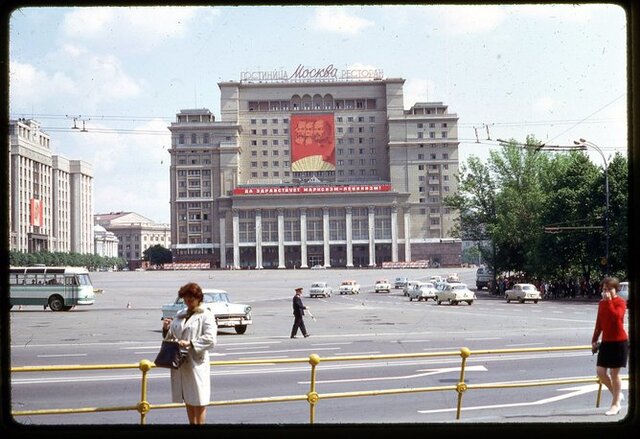|
5/11/2021 Book Review: Socialism Betrayed - By Roger Keeran and Thomas Kenney (2004). Reviewed By: Thomas RigginsRead NowIn Socialism Betrayed, Keeran and Kenny discuss the collapse of the Soviet Union (SU). While I think they fail to accomplish their aim they have produced a narrative history of the last years of the SU. Their thesis is, the SU collapsed "because of the policies that Mikhail Gorbachev pursued after 1986." This is reminiscent of the Great Man Theory of history put to rest by Plekhanov’s "The Role of the Individual in History." The book relates the Byzantine intrigues of the Politburo and a dozen or so men in the leadership. The authors’ heroes are Stalin (some qualifications are offered for his darker policies), Molotov, Malenkov and the early Brezhnev (who in his last five years "played no active part in state or Party life") and Andropov and finally Yegor Ligachev. The "axis of evil" that betrayed the SU runs from Bukharin through Khrushchev to Gorbachev. These two trends were representative of two trends in the economy. The authors’ heroes represented the first economy – i.e., the state-controlled industrial economy. The "axis of evil" represented the illegal second economy, which was a black market in consumer goods: articles of clothing, household articles, sunglasses, rip-offs of Western "pop music" and knickknacks. How the knickknack market found representatives on the Politburo and was able to overcome the socialized industrial sector makes up a large part of the book. This struggle is reduced to rivalries among the Soviet elite. The working class is barely mentioned in the recounting of events. Why does this emphasis on individuals rather than historic forces always take a back seat to great personalities? Why hasn’t the Soviet working class more voice or participation in this book? Economic problems, political and ideological stagnation and imperialist pressure did not cause the collapse, the authors say. That was the result of "the specific reform policies of Gorbachev and his allies" (as if the problems and stagnation were not the cause of the reform policies). They hold this view because they believe "the subjective factor is vastly more important in socialism than in capitalism." Elsewhere in discussing the economic problems of the Brezhnev era they write: "Even more important than the objective problems were the subjective ones: the problems of policy...." But policy is a reflection of objective reality. Policies are the result of objective circumstances and can never be "more important." In fact, "wrong" policies themselves have an objective basis. The authors end by discussing six alternative explanations of the collapse and then their own. The six explanations they reject are 1) flaws of socialism, 2) popular opposition, 3) external factors, 4) bureaucratic counter-revolution, 5) lack of democracy and over-centralization, and 6) the Gorbachev factor. Most agree that one and two were not factors. The remaining four, I think, should not be approached as independent categories. All four of these explanations should be seen as a dialectical unity. The external factors (imperialist pressure) plus the backward initial economic conditions led to a lack of democracy and over-centralization which resulted in an isolated Party leadership: a leadership that became bureaucratic and ultimately counter-revolutionary. The seeds of the collapse do not just go back to the Khrushchev era (or to Bukharin), but are to be traced back at least to 1919 and the failure of the revolutions in the West. The authors maintain they have a different explanation. But the thrust of the book places it in category six – the Gorbachev factor. They write: "What caused the Soviet collapse? Our thesis is that the economic problems, external pressures, and political and ideological stagnation challenging the Soviet Union in the early 1980s, alone or together, did not produce the Soviet collapse. Instead it was triggered by the specific reform policies of Gorbachev and his allies." The last pages of this book reveal a deeper cause in the bureaucratic counter-revolution theory. The authors maintain the collapse was not inevitable but was the result "of a triumph of a certain tendency within the revolution itself. It was a tendency rooted at first in the peasant nature of the country and later in a second economy, a sector that flourished because of consumer demands unsatisfied by the first economy and because of the failure of authorities to appreciate the danger it represented and to enforce the law against it." They end where one must actually begin. Why couldn’t the first economy satisfy the need for consumer goods, why did the bureaucracy foment counter-revolution? These are the important unanswered questions the international movement is still grappling with. I would also add that one of the weaknesses of this book is that there is no reference to the views of the Communist Party of the Russian Federation. In any event the discussion of why the SU collapsed has not been put to rest by this book. Socialism Betrayed: Behind the Collapse of the Soviet Union. By Roger Keeran and Thomas Kenny New York, International Publishers, 2004. AuthorThomas Riggins is a retired philosophy teacher (NYU, The New School of Social Research, among others) who received a PhD from the CUNY Graduate Center (1983). He has been active in the civil rights and peace movements since the 1960s when he was chairman of the Young People's Socialist League at Florida State University and also worked for CORE in voter registration in north Florida (Leon County). He has written for many online publications such as People's World and Political Affairs where he was an associate editor. He also served on the board of the Bertrand Russell Society and was president of the Corliss Lamont chapter in New York City of the American Humanist Association. Archives May 2021
0 Comments
|
Details
Archives
July 2024
Categories
All
|

 RSS Feed
RSS Feed